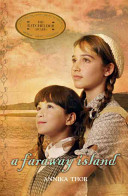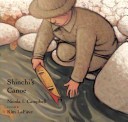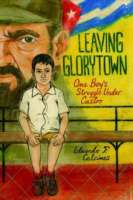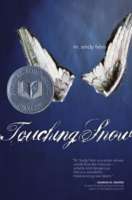
Torn from their homeland, two Jewish sisters find refuge in Sweden. It’s the summer of 1939. Two Jewish sisters from Vienna12-year-old Stephie Steiner and 8-year-old Nellieare sent to Sweden to escape the Nazis. They expect to stay there six months, until their parents can flee to Amsterdam; then all four will go to America. But as the world war intensifies, the girls remain, each with her own host family, on a rugged island off the western coast of Sweden. Nellie quickly settles in to her new surroundings. She’s happy with her foster family and soon favors the Swedish language over her native German. Not so for Stephie, who finds it hard to adapt; she feels stranded at the end of the world, with a foster mother who’s as cold and unforgiving as the island itself. Her main worry, though, is her parentsand whether she will ever see them again. From the Hardcover edition.
See the review at WOW Review, Volume 3, Issue 2





